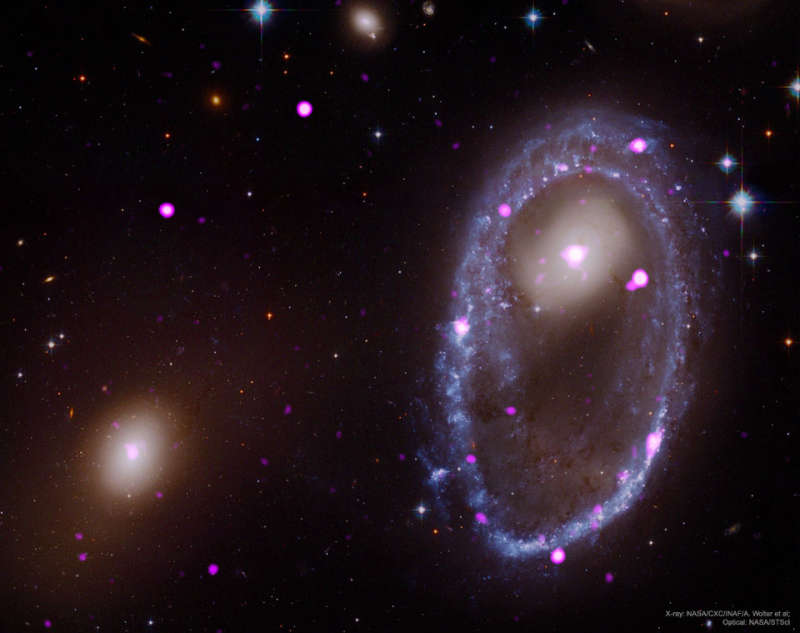 |
Астронет: Астрономическая картинка дня Космическое столкновение сформировало кольцо вокруг галактики http://www.astronet.ru/db/msg/1438516/eng |
Credit & Copyright: X-ray:
Chandra
(NASA,
CXC,
INAF,
A. Wolter et al.);
Optical:
Hubble
(NASA,
STScI)
Explanation:
How could a galaxy become shaped like a ring?
The rim of the blue galaxy
pictured
on the right is an immense ring-like structure 150,000
light years in diameter composed of newly formed, extremely bright,
massive stars.
That galaxy, AM 0644-741, is known as a
ring galaxy and was caused by an
immense galaxy collision.
When galaxies collide,
they pass through each other -- their individual stars
rarely come into contact.
The ring-like shape is the result of the
gravitational disruption caused by an entire
small intruder galaxy passing through a large one.
When this happens, interstellar gas and
dust become condensed, causing a
wave of star formation
to move out from the impact point like a
ripple across the surface of a pond.
The likely intruder galaxy is on the left of this combined image from
Hubble
(visible) and
Chandra
(X-ray) space telescopes.
X-ray light is shown in pink and
depicts places where energetic
black holes or neutron stars,
likely formed shortly after the
galaxy collision, reside.
Open Science:
Browse 1,800+ codes in the Astrophysics Source Code Library
Authors & editors:
Robert Nemiroff
(MTU) &
Jerry Bonnell
(USRA)
NASA Web Site Statements, Warnings,
and Disclaimers
NASA Official: Jay Norris.
Specific
rights apply.
A service of:
LHEA at
NASA /
GSFC
& Michigan Tech. U.
